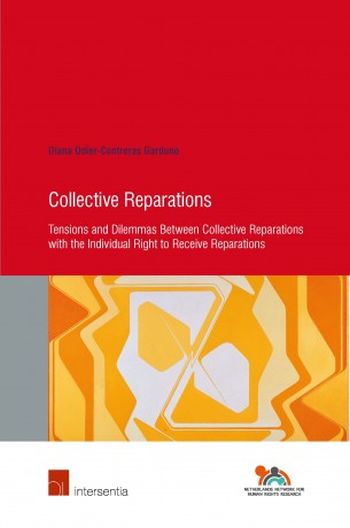We will be closed from 5pm Thursday 17th April for the Easter Bank Holidays, re-opening at 8.30am on Tuesday 22nd April. Any orders placed during this period will be processed when we re-open.

Although international human rights law establishes the individual right to receive reparations, collective reparations have been considered a common response from judicial and non-judicial bodies to reparations for victims of gross violations of human rights. As such, collective reparations have been awarded within the field of international human rights law, international criminal law and transitional justice. Yet the concept, content and scope of collective reparations are rather unspecified. To date, neither the judicial nor the non-judicial bodies that have granted this kind of reparations have ever defined them.
This book presents the first study on collective reparations. It aims to shed light on the legal framework, content and scope of collective reparations, and to the relationship between collective reparations and the individual right to reparations. In order to do so, the book analyses specific case law from the Inter-American Court of Human Rights, the International Criminal Court and the Extraordinary Chambers in the Courts of Cambodia. Additionally, the practices of non-judicial mechanisms were examined, specifically those of the Peruvian and Moroccan Truth Commissions and of two mass claims compensation commissions (the United Nations Compensation Commission and the Eritrea-Ethiopia Claims Commission). Finally, it provides an overview of the challenges that collective reparations present to the fields of international human rights law and international criminal law, including in their implementation.